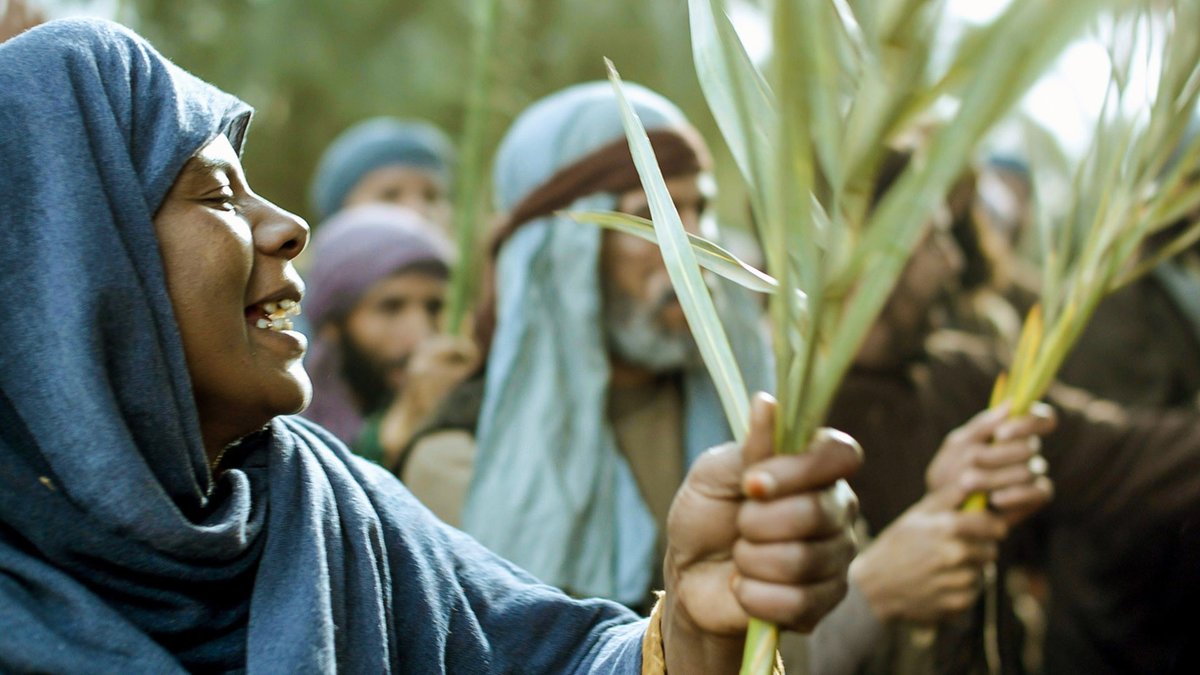Lenten Reflection: Miriam’s Story
We are journeying through Lent accompanied by Paula Gooder's Women of Holy Week. We begin with a reflection on Miriam's Story, written by Dr Heather Payne.

All the clues were there, although Miriam didn’t see them to begin with.
An ordinary woman, she could be any of us, concerned with daily tasks, keeping the household and the family running, aware of the political realities but not really feeling any power to change anything. The news full of taxes, soldiers, invasion, anger, making her wish it would all go away – that somebody could just stop the fighting. It’s hard to believe that two thousand years later, it feels like we’re in the same situation
Miriam held on tight to her family traditions and customs- the soothing, relaxing routines of dancing with friends, singing psalms, and the annual holiday outing pilgrimage to Jerusalem. How exciting that would feel, compared with the normal limitations on travelling – then as now. The unaccustomed chance to catch up with wider family and friends as everyone travelled together. Discussing everyone’s family problems- those two brothers who left their dad’s fishing business in the lurch to follow some preacher, the church leaders who didn’t seem too impressed with this new guy who was questioning their authority. Miriam and her friends were happy to have a good chat and put the world to rights as they travelled.
Was this life as good as it gets?
But the quiet doubts and questions that lurked in Miriam’s heart hadn’t gone away. Was this life as good as it gets? Yes, there were lots of things to be grateful for, but why did so many bad things happen? She tried to be a good neighbour, she was happy to roll her sleeves up and help anyone who was hungry or needed a hand, but just doing her best didn’t seem to answer those nagging questions. That pilgrimage wasn’t just a holiday, it was a mystery quest for her.
Miriam wasn’t even sure what she was looking for. She knew she wanted more complete answers to life’s problems than she was getting, and she felt something was missing. She had a strong sense of wanting to reach for something real, permanent, reliable, comforting, to be present here and now, in the world, not just a promise of something in the future. Those lovely words of the psalm ‘steadfast love’ – where would she find it?
But when she saw the answer, a real living person who embodied everything she was seeking, she wasn’t quite ready to trust her instinct to recognise Jesus as her journey’s end. Could this person be that steadfast love she knew she was looking for, to help her interpret life’s mysteries? Could it be as simple as that- just add Jesus?
The power of humility
It’s not surprising that Miriam was unsure– we’re all accustomed to interpreting the world through our own experiences, our familiar understanding of who we should trust and listen to. We follow paths along which our families and friends have helped and supported us to grow, flourish and eventually give back. It’s difficult to lay aside or challenge the expectations of our community, to take another path, swim against the tide, and risk rejection or loss.
Miriam was at the start, not the end of her mystery. The clues were coming together and she was beginning to understand how to see things a different way, to find the solution to things that had worried her. It was slowly dawning that ‘adding Jesus’ turned things the other way up. Leaving home to do God’s work could be a gain, not a loss; power could reside in gentleness and humility.
Just add Jesus, and it all makes sense.
We might view our problems as incomplete circles, where we have only seen our side, so that adding Jesus, and his love for us all, gives a God view rather than a human view. The ancient Mappa Mundi, the medieval map of the world that can be seen in Hereford Cathedral, shows Jerusalem, the Holy City, as the centre of the world, with everything measured relative to it. Miriam’s presence in that Jerusalem crowd where she saw Jesus, allowed her to recognise what was vital, central to her questions and worries about life. Just add Jesus, and it all makes sense.
Miriam set out on her quest thinking that she would find God in wealth, privilege, power and majesty, not hidden in plain sight every day, in humility, poverty, need and sacrifice. Seeing Jesus meant letting go of some assumptions, to be able to recognise truth when she saw it. She had a sense the future wasn’t going to be all plain sailing. But she knew that she would never be alone on the journey, because ‘just adding Jesus’ would help her answer conflict, loss or pain with the trust and hope of steadfast love.